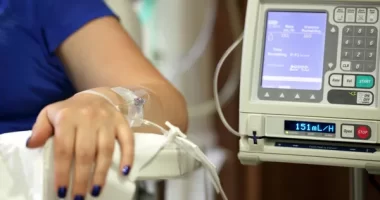New Study Uncovers Hundreds of Chemicals Linked to Breast Cancer Risk– Breast cancer remains the most common cancer and leading cause of cancer-related death among women worldwide. In the U.S., women are twice as likely to develop breast cancer as lung cancer. This concern extends to younger women, with double the mortality rate from breast cancer compared to other cancers in women aged 20-49. Moreover, the diagnosis rate for breast cancer in women under 40 has been steadily increasing by 1.1% annually since 2010.
Based on the growing concern, a new study published in Environmental Health Perspectives has identified hundreds of chemicals potentially linked to breast cancer risk. Researchers analyzed existing studies investigating the genotoxicity of potentially carcinogenic chemicals and their impact on mammary tumors and hormone signaling. Their goal was to pinpoint chemicals that could pose a threat to human breast health.
Reducing exposure to potentially carcinogenic and mammary tumor-inducing chemicals is crucial in preventing breast cancer. This study sheds light on such chemicals by using animal models with similar tissue structures and hormonal pathways as humans.
Key Findings
The researchers identified 279 mammary carcinogens and 642 chemicals capable of stimulating progesterone or estrogen signaling, totaling 921 potential breast cancer risks. Other key characteristics like genotoxicity, estrogen receptor activation, and steroidogenesis were also enriched in these mammary carcinogens, suggesting their effectiveness in predicting tumor-inducing potential and, consequently, human breast cancer risk.
Notably, steroidogenesis was more common than estrogen receptor activation, indicating that most mammary carcinogens increase progesterone and estradiol secretion.
Implications:
- The findings highlight the vast number of chemicals potentially contributing to breast cancer risk.
- Using key characteristics to identify harmful chemicals can be a powerful tool.
- Developing better methods to assess and reduce exposure to these chemicals is crucial for preventing breast cancer.
What are some common products that contain chemicals linked to breast cancer risk?
Common products containing chemicals linked to breast cancer risk include:
Makeup, skin, and hair care products: Chemicals like parabens and phthalates, which are known as endocrine disruptors, are commonly found in these products.
Food and drinks: More than 90% of the chemicals identified as potential breast carcinogens are found in everyday products in homes and workplaces, including food and drinks.
Pesticides: Numerous pesticide ingredients, such as malathion, atrazine, and triclopyr, are used on food and in household pest control products. Plastics: Some plastics contain bisphenol A (BPA), which has been linked to breast cancer risk.
Pharmaceuticals: Hormone therapies and oral contraceptives contain chemicals linked to breast cancer. Personal care products: Products like anti-aging creams may contain chemicals like perfluoroalkyl substances, which have been linked to breast cancer risk. It is essential to be aware of these chemicals in everyday products and take steps to minimize exposure to reduce the potential risk of breast cancer. Study source
ALSO, READ: Plant-Based Diets May Shield Against COVID-19 Risk










